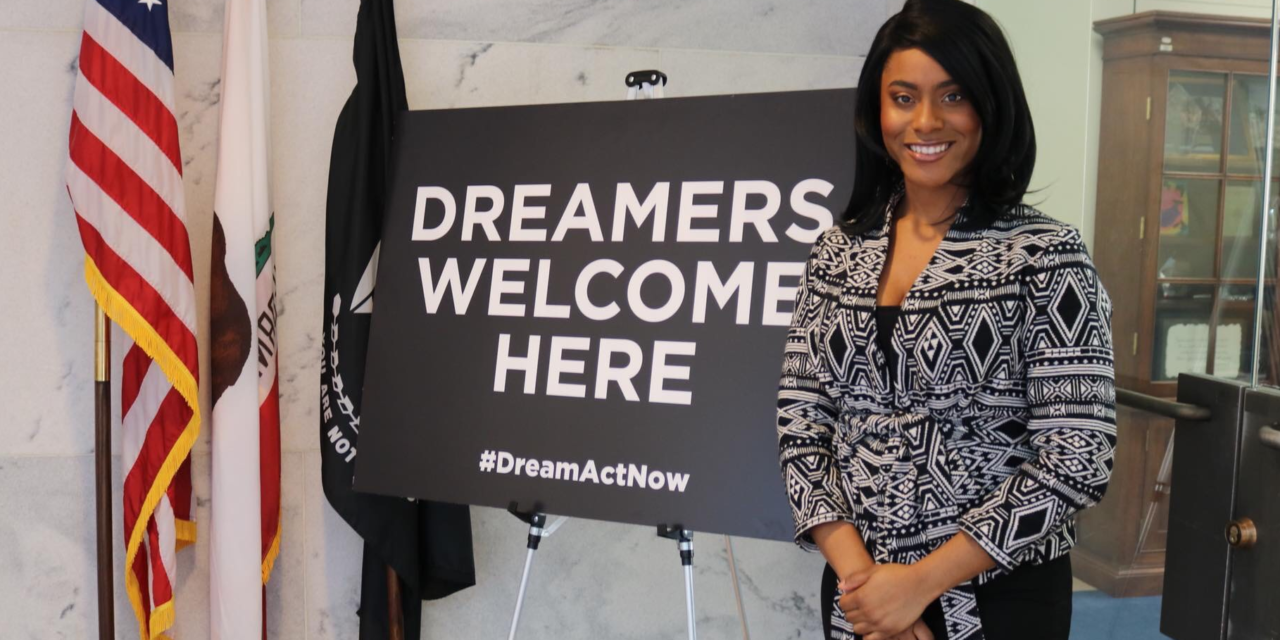I am one of approximately 619,000 undocumented, Black immigrants living in the United States. My immigration story began at seven years old, when I came to the United States from Belize without my mother, father, or siblings. The latter is a common narrative for DACA recipients like me. But the former challenges a popular misconception: that immigration is solely a Latinx issue.
I introduce myself in this way to tell you that Black immigrants do exist.
I remind you of this fact because the media has erased the Black experience from the larger immigrant narrative. The implication is that Black immigrants disappear in plain sight. We get left out of conversations relative to the future of immigrants in the United States. We’re seen as allies instead of individuals being directly impacted by the issue of immigration.
As a result of undocumented Black immigrant erasure, I stayed silent about my status until my junior year of high school. I stayed silent because fear, uncertainty, and lack of space to openly speak about my identity made me feel like I couldn’t show up as my full self.
But then I found my voice in the immigrants’ rights movement while in college. During my undergraduate career at UCLA, I utilized the very thing I believed would work to my detriment—my status—to advocate for my fellow undocumented people across the University of California, state of California, and nation.
It wasn’t always smooth sailing though. I often felt a sense of double consciousness. It seemed I wasn’t always considered “black enough” for Black American people, as someone from the African diaspora but not African American. And it was as if I wasn’t “immigrant enough” for the immigrants’ rights community.
During immigrants’ rights conferences people would ask me, “Where do Black immigrants come from?” and “Why haven’t I heard you speak Spanish?”
I would tell them “Black immigrants come from the same places you come from.” To the second question, I would answer: “Spanish isn’t the marker for immigrant identity—immigrants come from all across the globe.”
This idea of not being “black enough” always puzzled me. The sole difference between me—a Belizean-born Black person—and an American-born Black person is that my ancestors were dropped off at a different port. The reality is, there’s much more that unites us than divides us.
The Trump administration has done everything to move all Black immigrants from existing “legal” structures to illegality, placing a target on our already weaponized bodies.
This president has already barred many of us from immigrating to the United States in the first place by expanding the list of countries included in the travel ban. He has denied migrants their legal right to seek asylum. These policies all come together to mean one thing: the administration prefers immigrants from countries like Norway instead of countries like Haiti—a country the president has deemed a “shithole.”
This Black History Month, we can’t talk about our experiences as though they are wholly different from one another.
We can’t talk about family separation at the U.S.-Mexico border without talking about the origins of family separation: the auction block for enslaved African families.
We can’t talk about the creation of new prisons without talking about the rise in private detention centers.
We can’t talk about the school-to-prison pipeline without talking about the school-to-deportation pipeline.
We can’t talk about mass incarceration without talking about mass deportation.
We can’t talk about hyper-policing of African Americans without talking about hyper-policing of Black immigrants due to both our status and skin color.
My favorite quote from one of my favorite wordsmiths, James Baldwin, is from a letter to Angela Davis in which James said: “If they come for you in the morning, they will be coming for us that night.”
As we near the end of Black History Month and envision Black futures, we are reminded that our liberation is bound to one another. If I’m not free, you’re not free. If you’re not free, I’m not free.
Denea Joseph is a Deferred Action for Childhood Arrivals (DACA) recipients from Belize, Central America. She’s the founder of UndocuImpact, a national immigrant rights activist, and the former communications coordinator for the UndocuBlack Network.
FILED UNDER: DACA, undocumented immigration


